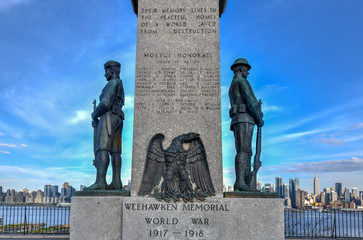
Royal Dutch Shell PLC, or simply Shell, is a corporation known to be one of the biggest petroleum corporations publicly listed. Shell is involved in oil and gas exploration, production, refining, and sales. Shell also has an interest in various enterprises aside from oil, delving into metal and coal mining, solar energy, forestry, and biotechnology, amongst other things.
Before it became a unified entity in 2005, the Royal Dutch/Shell Group had a complicated corporate structure, comprising hundreds of companies spanning the globe. All the companies which operate in its corporate infrastructure were owned by its two publicly listed parent companies: The Royal Dutch Petroleum Company, a Dutch company, which held a 60% stake in the company, and the “Shell” Transport and Trading Company, a United Kingdom-based corporation, which owns the remaining 40%.
The Royal Dutch/Shell Group was established in 1907 when the two rivals, “Shell” Transport and Trading Company Ltd, merged with Royal Dutch Petroleum Company. Six years before this merger, Marcus Samuel junior of the “Shell” Transport and Trading Company, was lucky and opportune enough to secure the transport and distribution rights for oil discovered in Texas. He took the deal from Standard Oil, his company’s biggest rival at the time. However, Royal Dutch had set up a network in Asia with its tankers, causing the “Shell” Transport and Trading company to only sell at half capacity. The two companies officially merged on April 23, with Hendrik W.A. Deterding of Royal Dutch as the general manager.
However, the two companies have their unique origins that brought that into that position. “Shell” Transport and Trading Company started with Marcus Samuel; he decided to create a firm in London to expand his antique-selling business to encompass oriental seashells. These seashells were very popular for interior design at the time. His company was so successful at importing and exporting them that it laid the groundwork for what would become one of the world’s largest energy corporations. When Marcus Samuel died, his sons Marcus junior and Samuel continued the business and immediately set about to expand it.
Marcus saw the potential in trading oil and had eight tankers built. He had this built to prevent problems that cropped up due to shipping storage problems as barrels were prone to leakage. By the end of 1896, Shell had developed oil wells and refineries in Borneo.
Founded in 1890 by Jean Baptiste August Kessler and Henri Deterding, the Royal Dutch Petroleum Company (originally known as the Koninklijke Nederlandse Maatschappij tot Exploitatie van Petroleumbronnen in Nederlands-Indië or “Royal Dutcch Company for the Exploitation of Petroleum Wells in the Dutch East Indies”) was essentially run by Dutch bankers, former colonial administrators, and business people. In 1892, the company built a pipeline and refinery in Sumatra, tapping into the region’s oil reserves. They moved on to building tankers and storage units with the direction of Deterding, and they also established a sales organization.
By World War I, the Royal Dutch/Shell Group was a significant source of fuel to the British Expeditionary Force and the sole provider of aviation fuel. The company also gave the army more than half of the TNT it used while giving it unlimited access to all of its shipping vessels. In appreciation for Shell’s assistance in the war, the United Kingdom made Marcus Samuel Junior, 1st Baron Bearsted of Maidstone in the County of Kent.
from WordPress https://ift.tt/3pCPr7X
via IFTTT

